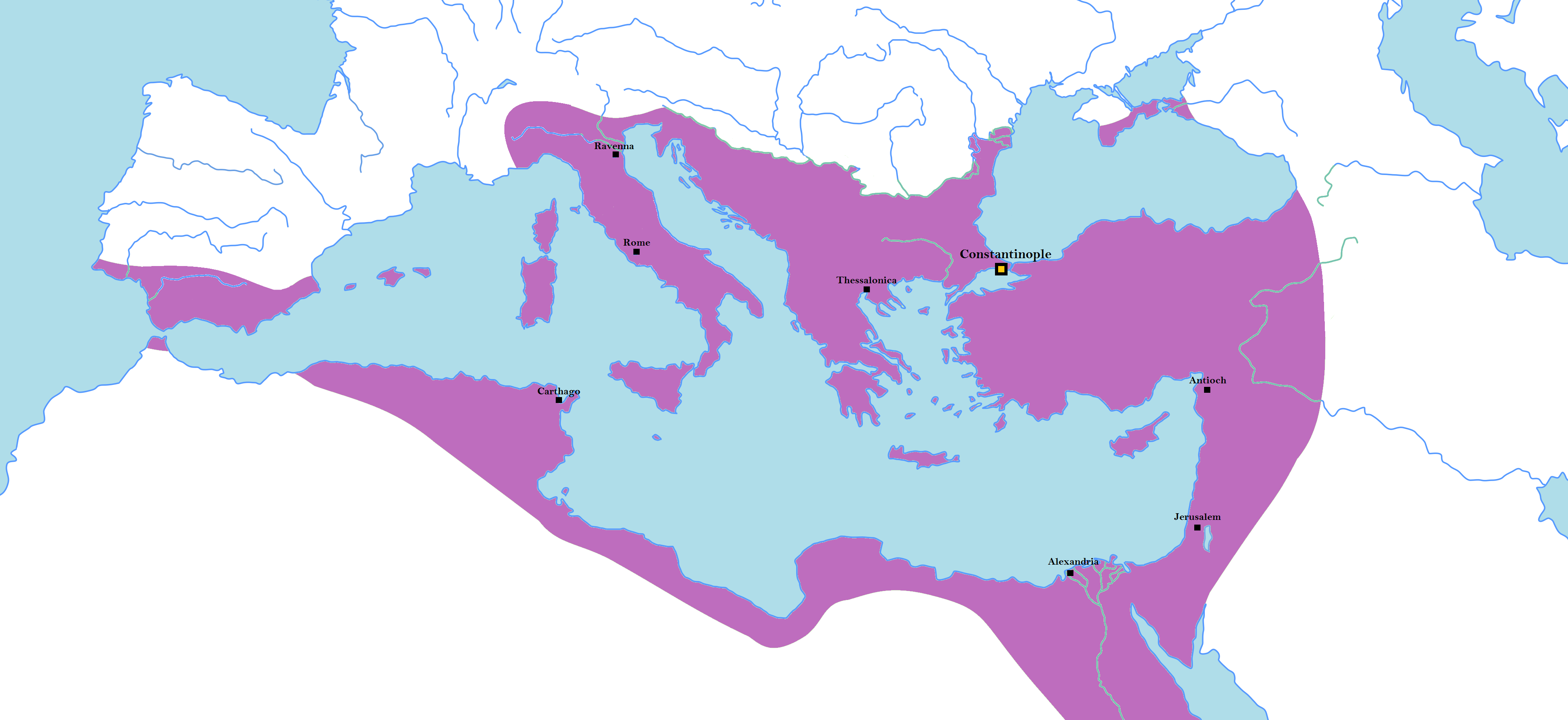More languages
More actions
| Eastern Roman Empire Βασιλεία Ῥωμαίων | |
|---|---|
| 476 CE–1453 CE | |
|
Flag | |
 Byzantium in 555CE | |
| Capital | Constantinople |
| Common languages | Greek |
| Dominant mode of production | Feudalism |
| History | |
• Formation of the Roman Empire | 27 BCE |
• Fall of the Western Roman Empire | 476 CE |
• Constantinople falls; Byzantium ends | 1453 CE |
| Population | |
• 565 CE estimate | ~26,000,000 |
Byzantium, also called the Byzantine Empire or the Eastern Roman Empire, was an imperial state that lasted from 395 to 1453 CE. It is commonly viewed as a medieval continuation of the Roman Empire. At its foundation, the Byzantine Empire controlled one-third of the Roman army but collected two-thirds of its tax revenue. Its well-equipped, professional armies were able to defeat repeated invasions while the western empire collapsed into a patchwork of warring states.[1]
History
Loss of territory
The Arabs took control of Syria in 636 at the Battle of Yarmuk. When the Turks seized eastern Anatolia in 1071, the empire shrank to half its original territory. Crusaders sacked the capital city of Constantinople in 1204, and the remnants of the empire finally fell to the Ottomans in 1453.[1]
References
- ↑ 1.0 1.1 Neil Faulkner (2013). A Marxist History of the World: From Neanderthals to Neoliberals: 'European Feudalism' (p. 79). [PDF] Pluto Press. ISBN 9781849648639 [LG]

